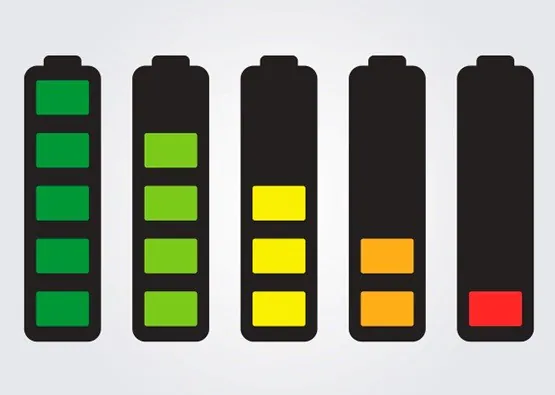
The battery has a longer life span compared to previous sodium-sulfur batteries. Image Credit: Pixabay
The battery was developed under the direction of Dr. Shenlong Zhao from the University’s School of Chemical and Biomolecular Engineering utilizing sodium-sulfur, a sort of molten salt that can be produced from seawater and is far less expensive to create than lithium-ion.
Although sodium-sulfur (Na-S) batteries have been around for more than a half-century, their widespread application has been hampered by low energy capacity and short life cycles.
Using a simple pyrolysis technique and carbon-based electrodes to boost the reactivity of sulfur and the reversibility of interactions between sulfur and sodium, the researchers’ battery has thrown off its sluggish reputation, demonstrating super-high capacity and ultra-long life at room temperature.
The Na-S battery, according to the investigators, is also a highly energy-dense and less hazardous alternative to lithium-ion batteries which, while widely used in electronic devices and for energy storage, are costly to produce and recycle.
Dr. Zhao’s Na-S battery was created primarily to provide a high-performance solution for large renewable energy storage systems, like electrical grids, while dramatically lowering operational costs.
According to the Clean Energy Council, 32.5 % of Australia’s electricity will come from clean energy sources by 2021, and the industry is advancing. There is also more growth in household energy storage. An installation of 33,000 batteries, a record, was made in 2021, claims a recent report.
Our sodium battery has the potential to dramatically reduce costs while providing four times as much storage capacity. This is a significant breakthrough for renewable energy development which, although reduces costs in the long term, has had several financial barriers to entry. When the sun isn’t shining and the breeze isn’t blowing, we need high-quality storage solutions that don’t cost the Earth and are easily accessible on a local or regional level.
Dr. Shenlong Zhao, School of Chemical and Biomolecular Engineering, University of Sydney
Dr. Zhao adds, “We hope that by providing a technology that reduces costs we can sooner reach a clean energy horizon. It probably goes without saying but the faster we can decarbonize—the better chances we have of capping warming”.
Storage solutions that are manufactured using plentiful resources like sodium—which can be processed from seawater—also have the potential to guarantee greater energy security more broadly and allow more countries to join the shift towards decarbonization.
Dr. Shenlong Zhao, School of Chemical and Biomolecular Engineering, University of Sydney
The University of Sydney’s Chemical Engineering Facility has successfully manufactured and tested the lab-scale batteries (cion batteries). The researchers now intend to enhance and commercialize the newly created Ah-level pouch cells.
Journal Reference
Zhang, B.-W., et al. (2022) Atomically Dispersed Dual-Site Cathode with a Record High Sulfur Mass Loading for High-Performance Room-Temperature Sodium–Sulfur Batteries. Advanced Materials. doi.org/10.1002/adma.202206828.